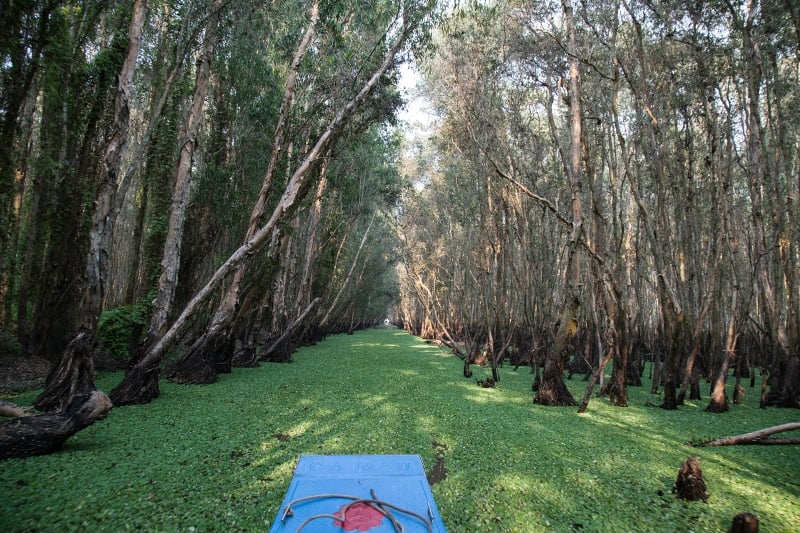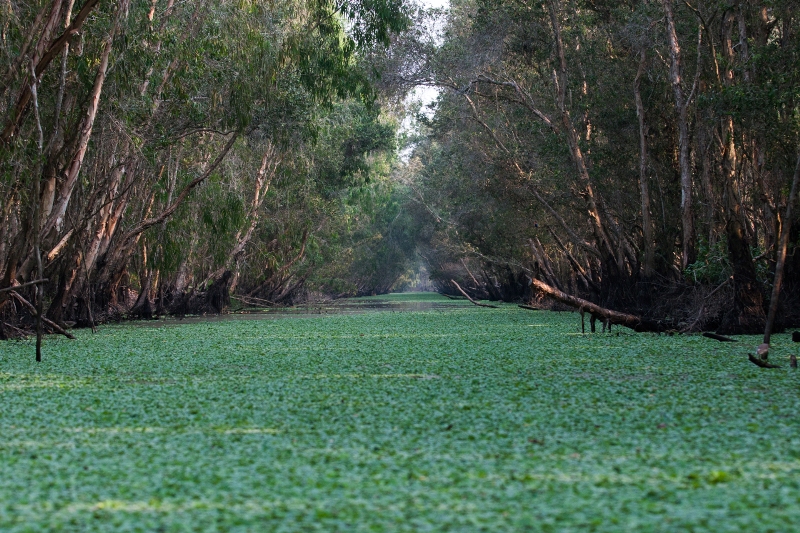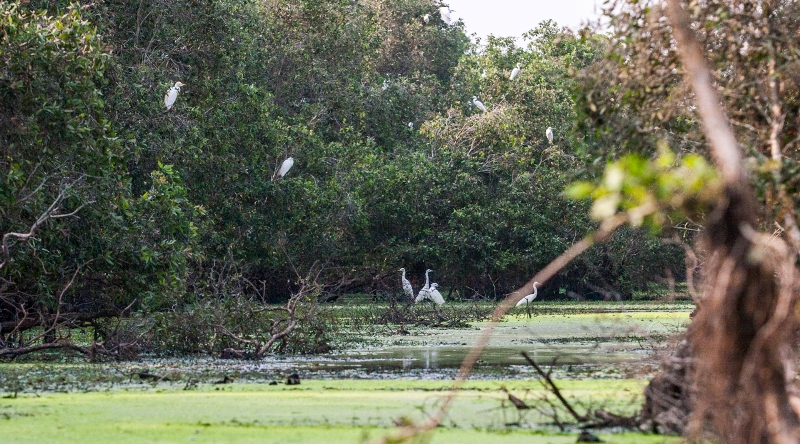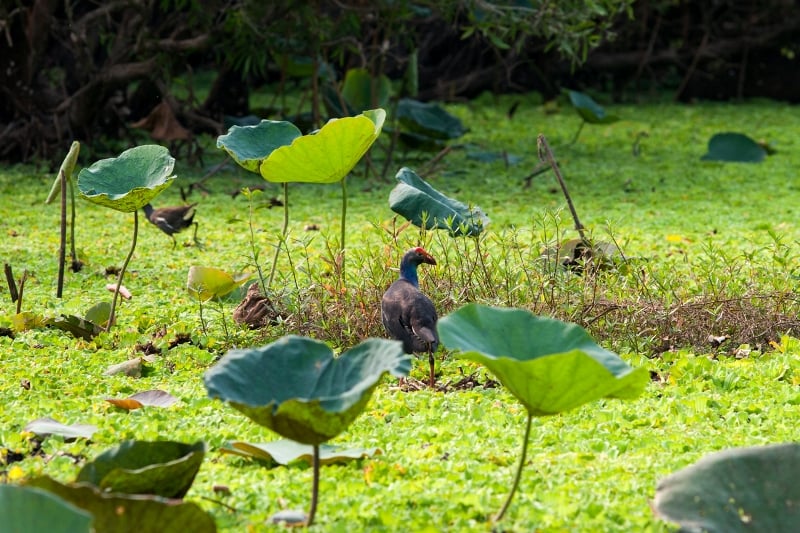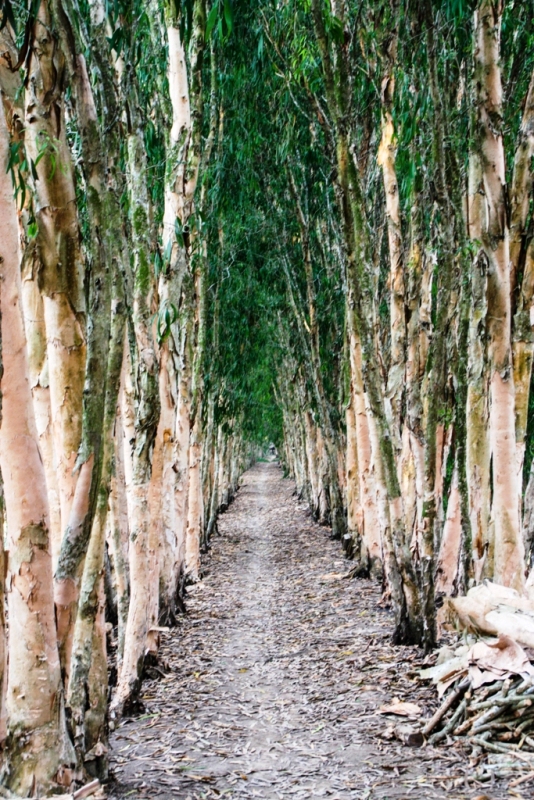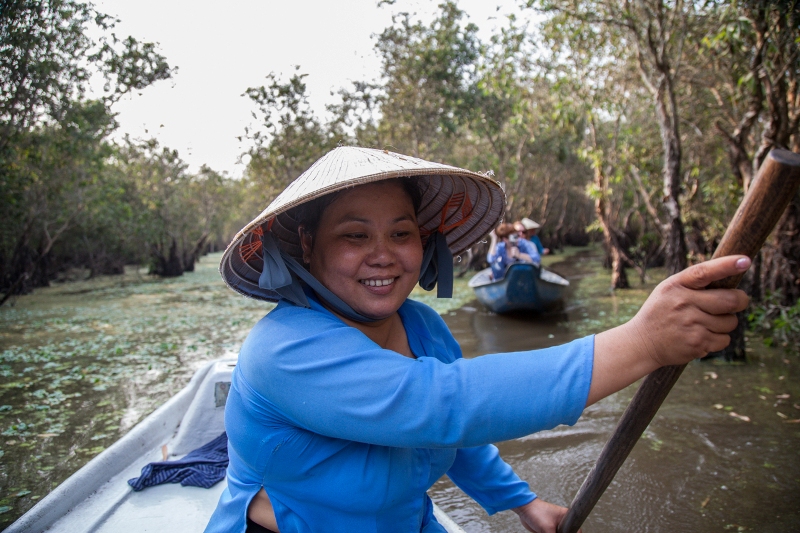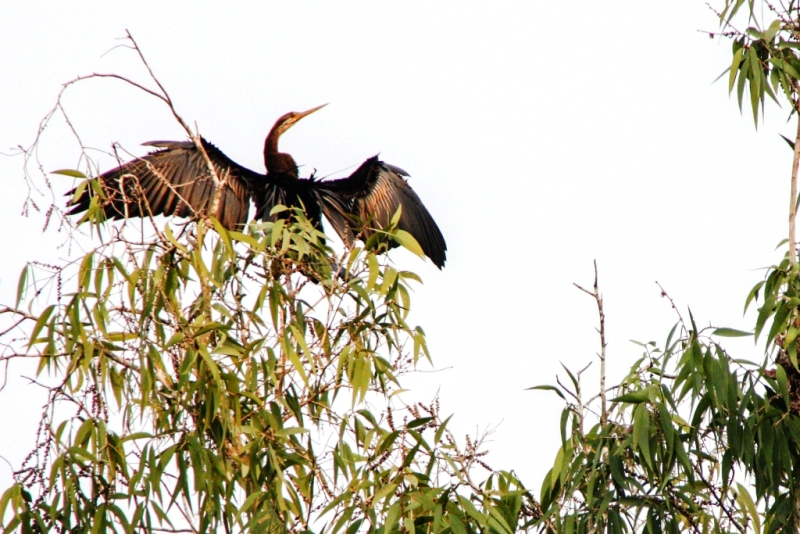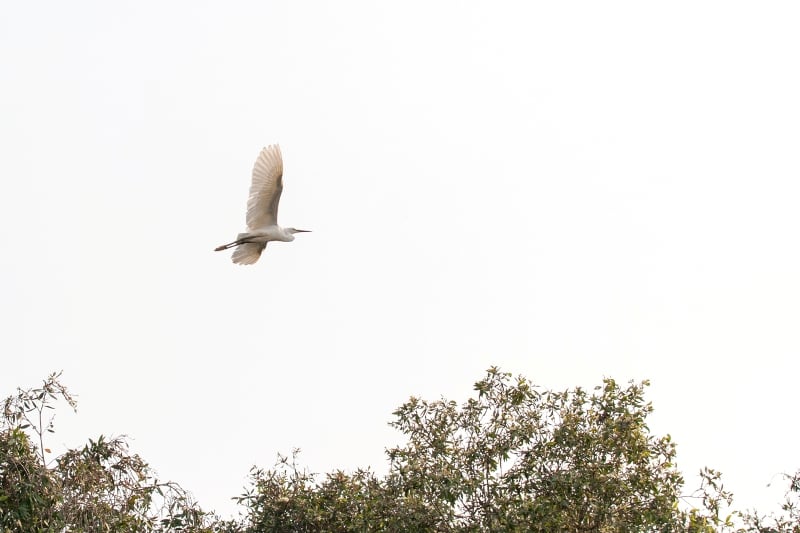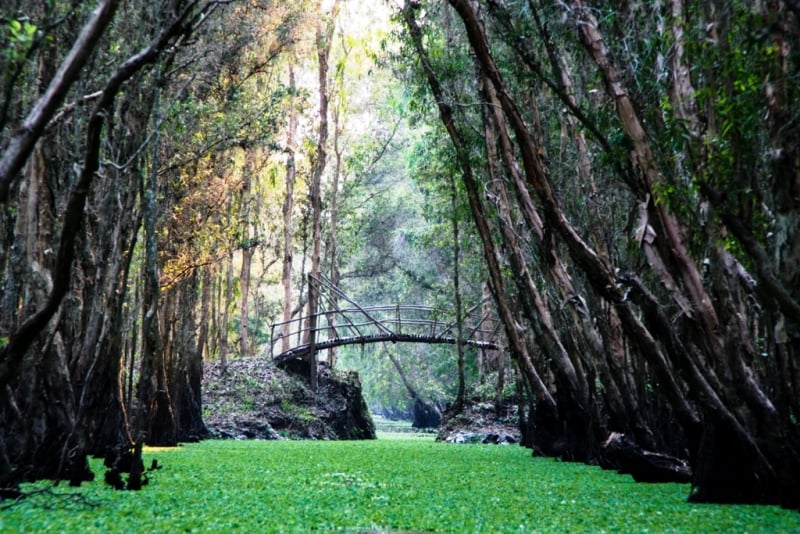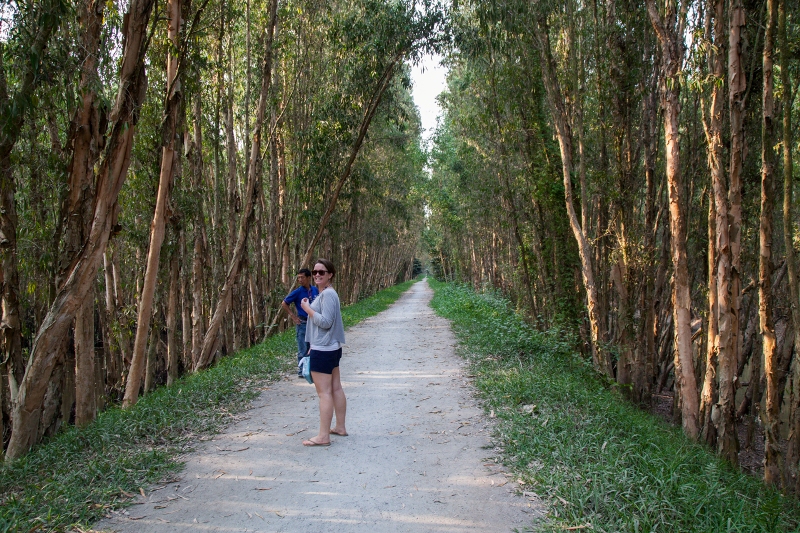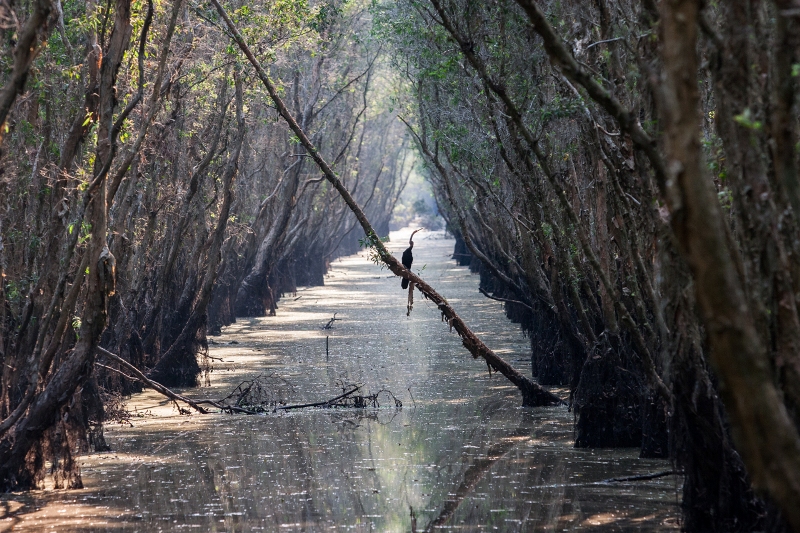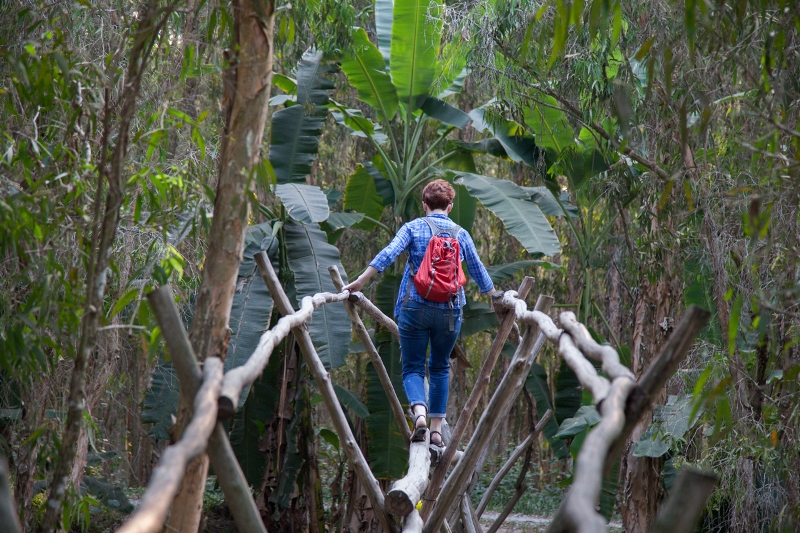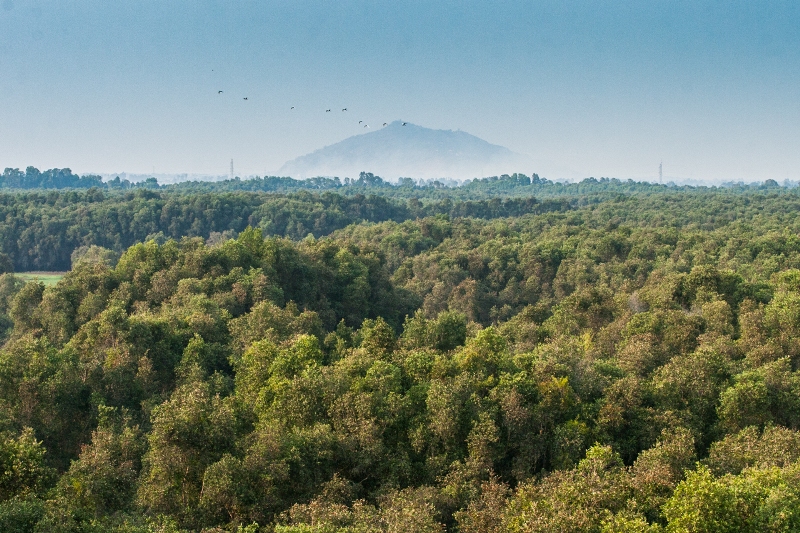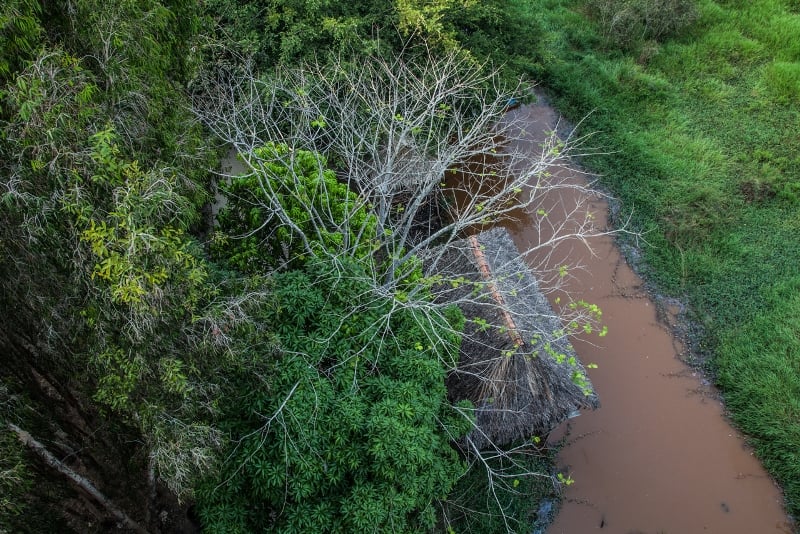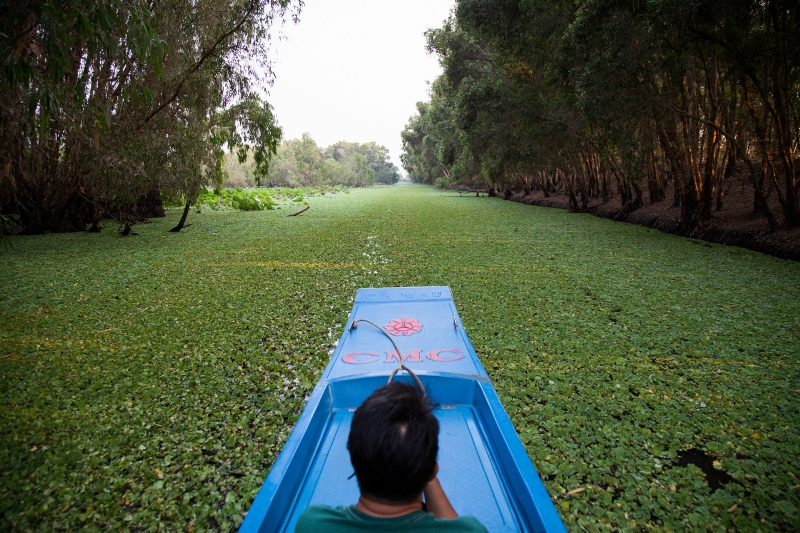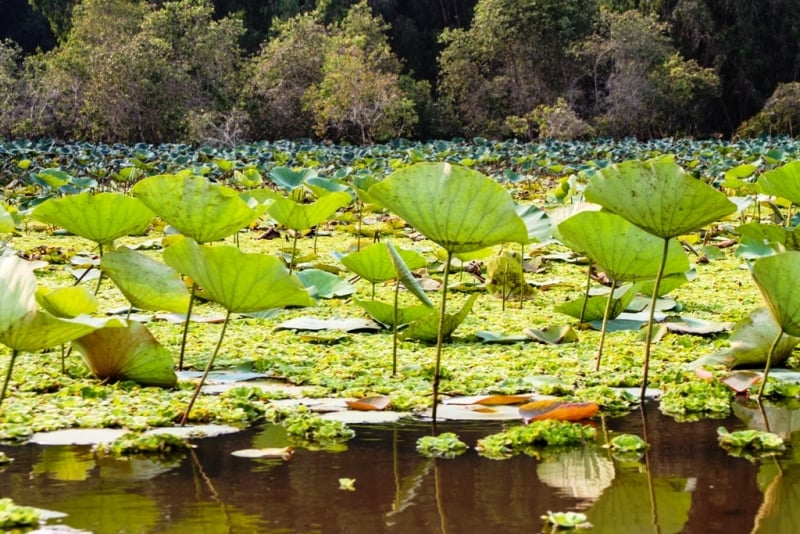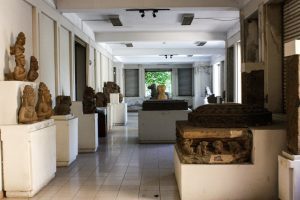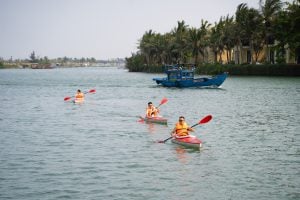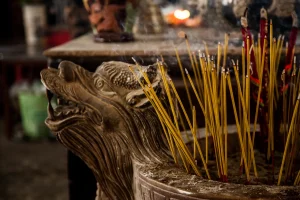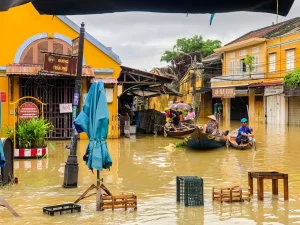Just 30 km southwest of Chau Doc lies the 850-hectare Tra Su Forest, an ecosystem of cajuput trees that line dusty dirt paths and a flooded mangrove forest that is a stunning backdrop for the paradisaic park’s plants and animals.
Home to 140 types of flora, 70 species of birds, 11 types of animals, 25 species of reptiles, and 23 kinds of fish, the forest is a nature lover’s dream. We explore the area on a day trip in what turns out to be one of our most magical destinations in all of the Mekong Delta.
A short walk from the parking area takes us to the small pier where boats wait to take us into the flooded forest.
We load up, carefully navigating the narrow boat and begin our journey.
We soon find ourselves zipping through a living carpet of water lettuce with their pretty green rose-like petals, so dense that we have to remind ourselves that we’re actually on water.
The channels narrow and widen, and we crane our necks to peer beyond the trees, tantalizing flashes of white catching our eye. Tra Su is also a mangrove forest, flooded throughout the year. Gnarled, twisted trees add to the illusion of being on land.
We pass waterbirds of all shapes and colors, dancing between the reeds and lotus blossoms, their small bodies and hollow bones barely making a dent on the leaves.
We soon reach a stopping point, where a short walk along paths lined by tall, straight cajuput trees with their flaky, spongy bark lead us to a small canoe.
Our rower, Vui, is one of 11 rowboat ladies who ferry visitors through the flooded mangrove forest. For each 15-minute trip, she earns VND 15,000. “I’m happiest when there are lots of tourists, of course,” she says as she paddles the sturdy boat through more lush vegetation. “The money helps us send our children to school. Being surrounded by nature every day is just a bonus.” She stops to point out her favorite birds.
The journey is nothing short of mesmerizing, the soft splashes from the paddling with bird calls in the distance the perfect soundtrack. We swivel our necks in every direction to take in all the sights.
A bird stretching its wing muscles way up high…
or one graceful in flight…
or running through the water plants hoping to scare up a meal of insects…
We now board our third boat, this one a larger motorboat that takes us deeper into the forest. The canals here are wider, bordered by larger trees, and the afternoon sun peeks through the branches, casting a warm glow on the picture perfect landscape.
Once in the heart of the forest, we find ourselves walking along the banks of the waterways…
… every now and then peeking to our left or our right, down the many watery arteries that run through this beautiful forest. We’re rewarded by the most stunningly peaceful views…
The adventurous amongst us take to the monkey bridges that criss-cross the canals. I’m happy keeping my feet on a sturdy concrete one…
Our destination is the 25m watchtower where we take in a “bird’s eye view” of the canopy, with spiritual Nui Sam in the distance, enjoying the afternoon breezes while sipping on a fresh coconut.
It’s now late afternoon, and the birds are coming back to roost inciting a cacophony of calls and chirps and squawks.
Reluctantly, we make our way back to the entrance, back through the enchanted forest of Tra Su, a not-to-be-missed half-day trip from Chau Doc.
Travel tips: Entrance into the Tra Su Forest works out to about VND 60,000 per person (depending on the number in your group), including all boat rides. Tips are appreciated. There are a few huts selling coconuts and snacks, but bringing your own picnic lunch would be ideal.
Alternatively, The Victoria Hotel Chau Doc offers an excursion that visits the stunning Tra Su Bird Sanctuary along with a trip to nearby Tuc Dup Hill (complete with meeting a local war veteran). Enquire at the tour desk at Victoria Chau Doc or email: [email protected]
Photography tips: For the best bird photographs, you’ll want your camera to do most of the work. Wildlife photography requires patience (and luck), so when a bird looks like it’s about to do something interesting, be ready with your shutter half pressed to focus. Then shoot in burst mode, to catch the bird in movement.
Photographers often talk about the “golden hour”, the time right after sunrise and before sunset when the sunlight is at its softest. Luckily, this is also when the birds are most active, so try to arrange your visit during these periods.
The park itself is a stunning backdrop for the wildlife. If the background is as interesting as the subject, use a narrow aperture so that both are in focus. To draw attention to the bird alone, try a larger aperture to blur the background. A good zoom lens is a must.
